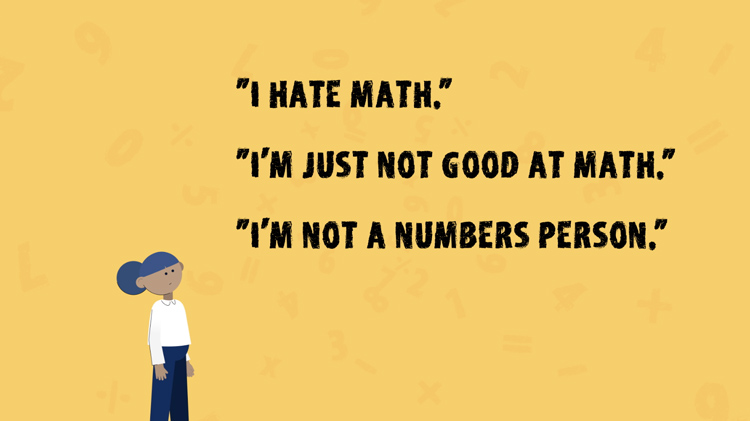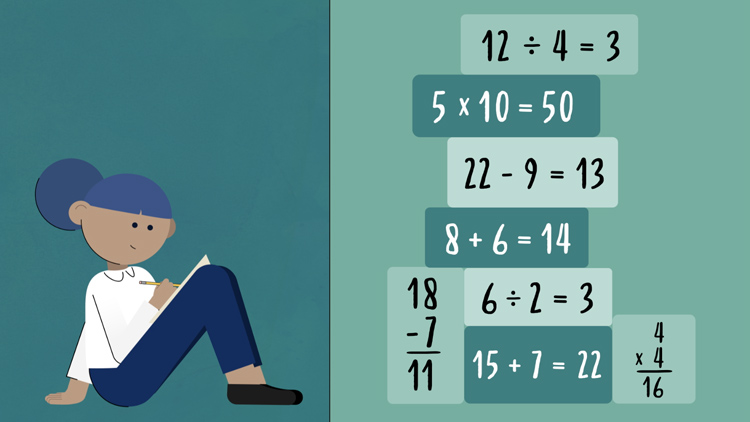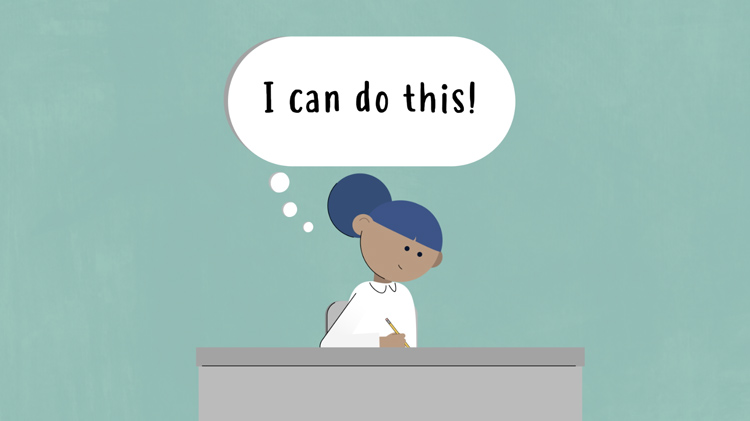Addition and Subtraction -
Do You Have Math Anxiety?

Addition and Subtraction
Do You Have Math Anxiety?


/en/additionsubtraction/video-subtraction/content/

Have you ever said any of the phrases seen above? Then you might have math anxiety.
Math anxiety is a feeling of worry or uneasiness that interferes with the ability to do math. It's been shown to decrease working memory, which is a part of your short-term memory that holds information while solving problems.
So math anxiety doesn't just make you feel nervous — it can actually hurt your math performance. This can then make your anxiety worse, creating a loop that's hard to break out of. But the good news is that you can break the cycle!
Watch the video below for some tips on overcoming math anxiety.
Studies have shown that people who wrote about their frustrations and worries before taking a math test actually performed better.

Math often builds on a set of basic skills like addition, subtraction, multiplication, and division. Practice a little every day to build your confidence.
As we stated above, math anxiety takes away some of your working memory. Therefore, the more you write down, the less your brain has to remember.

Anxiety can also cause physical symptoms like shortness of breath and increased heart rate. You can combat these physical symptoms by practicing meditation or using breathing exercises.
Math anxiety is mostly built on the worry that you're not able to do the math. Therefore self-efficacy, or the belief that you can do something, serves as a good counter. Ditch phrases like "I'm not good at math", and replace them with, "I can do this!"

Everyone encounters math at some point or another, so it's important not to let math anxiety hold you back.